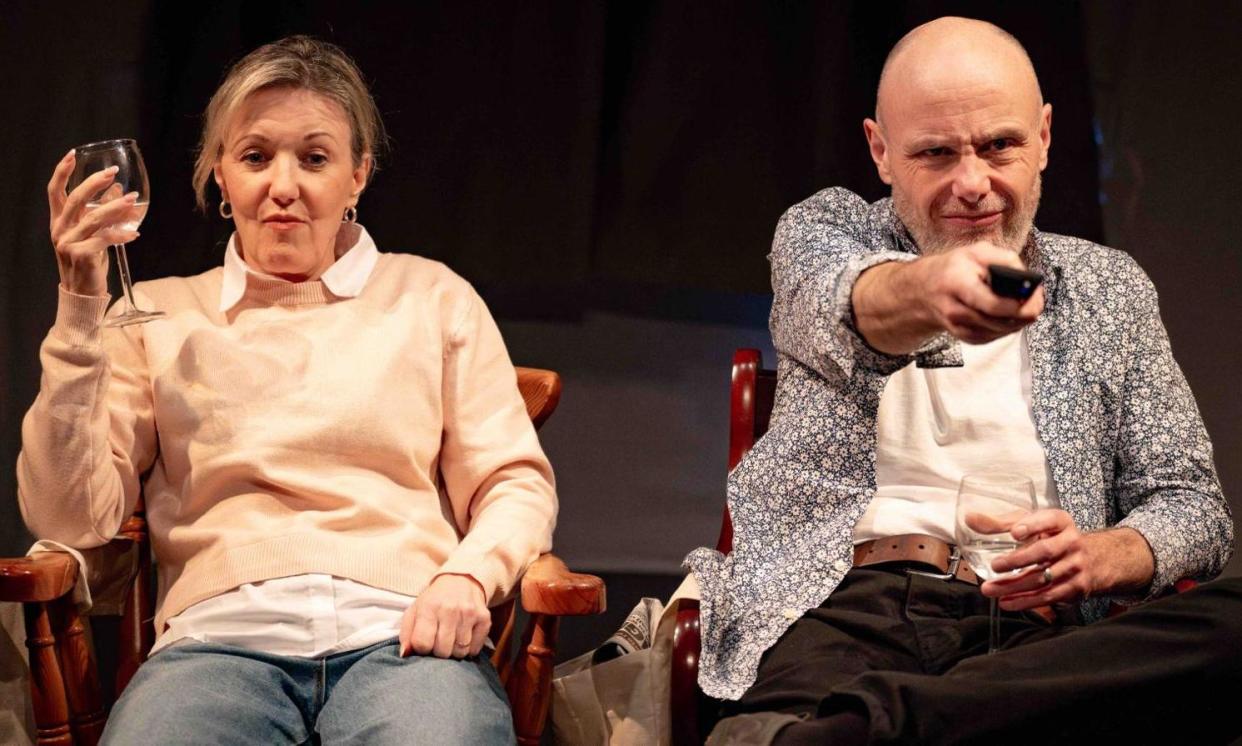Jab review – Kacey Ainsworth and Liam Tobin lock horns in lockdown

James McDermott’s new play takes us back to the Covid-19 lockdowns in both form and content. Set in 2020-21, this taut domestic two-hander recalls the monologues and duologues that were streamed or given socially distanced performances when theatre was brought to its knees. Four years on, the industry is still counting the cost of Covid yet precious few plays are directly dealing with the global emergency that changed all our lives.
The title refers to the vaccine that divides NHS worker Anne (Kacey Ainsworth) and her anti-vaxxer husband Don (Liam Tobin) yet also alludes to their verbal and physical altercations. Arriving by throwing shapes to the Eurythmics, the couple party about before slumping in front of the television and into a clearly well-worn routine: boozing and winding each other up.
Wine bottles are stashed around Leah Kelly’s set and four chairs are frequently rearranged for scenes set in a claustrophobic home, well-suited to this intimate venue. McDermott’s snappy dialogue captures fond familiarity curdled into contempt. Don has been forced to close his vintage shop and finds his days suddenly empty; Anne, who has already felt confined for years, is now working from home. “You’re non-essential,” she tells him. “Like a luxury item. I’m a bath bomb,” he replies.
But the quips reveal the longstanding source of tension that Anne is the breadwinner. Over the course of short scenes, often ending with that day’s death toll and Adam Langston’s searing music, their disputes escalate. Aside from a brief mention of Dominic Cummings’ Barnard Castle day trip, their rage is not directed outwards but at each other. Ainsworth and Tobin convey their characters’ frustrations through nuanced gestures, yet the intensity often needs to be sustained for longer as the different iterations of abuse are explored.
McDermott captures the peculiar rhythms of lockdown – bursts of activity amid ennui – and the same phrases return spoken in different tones, switching between affection and disgust, yet never quite gaining an accumulative power. Scott Le Crass’s 70-minute, interval-free production has pregnant pauses and – a particularly potent device for Covid drama – pregnant coughs.
Inspired by his parents’ faltering relationship during the pandemic, McDermott’s play has the straightforward linear structure of a diary and you wonder what the impact would be if its chronology was exploded. The final sequences lack emotional pull and some more assured movement direction would benefit what is nevertheless a well sketched portrait of a couple brought to the brink.
At the Finborough theatre, London, until 16 March


